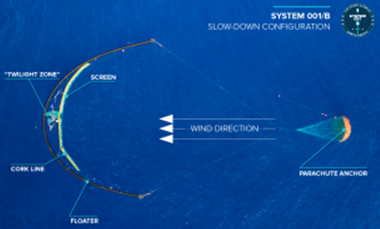In light of World IP Day which is celebrated on 26 April each year, it seems an appropriate time to look back on some of the most creative and innovative "green" inventions of the past few years. Without creativity and innovation there is no progress and that is why the theme of this year's World IP Day was "Innovate for a Green Future". The annual celebration is coordinated by the World Intellectual Property Organisation (WIPO) and it picks a different theme each year. The last five years have seen themes ranging from sports to women, improving lives, digital creativity and music.
The last time that "green" innovation was a theme was in 2009, and, suffice it to say, a lot has changed in the world of eco-inventions since then.
Last year, 2019 saw the meteoric rise of the Greta effect. It is arguable that Greta Thunberg single-handedly changed the world forever. She managed to spearhead a climate change campaign that has been at pains to grab headlines for the past 20 to 30 years. However, she did not have to go it alone for long and it was soon to become a staple in our weekly news that for the good of humanity and the natural world, we should be concentrating on one of the biggest challenges, tackling climate change.
Whilst we keep calm and carry on through the pandemic, which needs no introduction, it might provide some light relief to read about some of the more fun and fascinating eco-friendly inventions that came out of the second decade of the 21st Century.
Firstly, in line with the 2020 green theme, Coral Vita (https://www.coralvita.co/) is a start up company that "works to restore our world's dying and damaged reefs". The company grows corals on land through something called "micro-fragmenting" and transports them into damaged reefs which helps to regrow and revitalise those reefs. The founders are certainly well accomplished in the field of environmental studies, and they were awarded Yale University’s first-ever Green Innovation Fellowship while students there. You can even choose to "adopt-a-coral" here. They also have a rather nifty logo:

Next up is aircarbon (a trade marked term), an innovation by a company called NewLight (https://www.newlight.com/). They make the product by turning greenhouse gasses into a material called polyhydroxyalkanoate, which they have named aircarbon, using a highly efficient reactor. The end material can be used to make consumer products in the fields of fashion and furniture and is an alternative to plastic and synthetic materials. Even more exciting is the fact the company is working on adapting it for use as artificial skin, to help the healing process.
Moving on to something very topical in the past few years, touted as "the largest cleanup in history", The Ocean Cleanup (another trade marked term) aims to cleanup 90% of the pollution in the ocean. The issue was highlighted by David Attenborough's Blue Planet II three years ago which had a powerful impact, although plastic pollution in the ocean has been plain to see for many years (some may remember Episode 21 Season 8 of The Simpsons in 1997 and the horror of Mr Burns' invention dubbed Lil Lisa's Patented Animal Slurry).
How The Ocean Cleanup works is by cleaning up what is already in the oceans, with a concentration on what is known as the Great Pacific Garbage Patch (located between North America and Japan), using "a fleet of cleanup systems" consisting of a barrier kept buoyant by floaters with a skirt underneath to trap debris from escaping. It looks a little something like this:

(image source: https://theoceancleanup.com/media-gallery/).
There is also interception of the plastic at source, i.e. in rivers before it enters the oceans, using a rather ominous sounding vessel, the Interceptor (again, a trade marked term). It is essentially a barge that collects rubbish by diverting it onto a conveyor belt which drags the rubbish on board using 100% solar powered energy. Environmental Impact Assessments are conducted to ensure there is no negative impact on marine or riverine life during these processes.
They are using this trade marked logo:

Finally, it is worth mentioning a business a little closer to home, in that it is located in a disused WWII air raid shelter under the Northern Line in Clapham, called Growing Underground (http://growing-underground.com/). The organisation grows micro-greens and salad leaves using hydroponic systems and LED technology; it is pesticide free and unaffected by seasonal changes or the weather. The method uses 70% less water than traditional open-field farming and as it grows it will hopefully be able to scale up in producing more substantial products. Its location is one of the real innovations, saving on fuel due to city-centre proximity and rent costs by occupying an otherwise disused rather inconvenient space. You can even book a tour of the underground farm (perhaps one for post-lockdown).
They use this logo:

There are many more eco-inventions out there worth having a look at, LifeStraw, Algalife, Avani Bags, to name but a few and if you can stomach it, a food waste solution called the Hive Explorer using mealworms to recycle food waste into fertilizer and edible protein.
In amongst all these incredible inventions are intellectual property rights protected by patents, trade marks, copyrights, designs and domain names, and it is these protections that bolster the commercial exploitation of the inventions enabling companies to grow and invent more. As we travel through the pandemic, it will be interesting to see what inventions appear, eco-friendly or otherwise, whether medical or stemming from our need to adapt to a more socially distant, virtually run world.
To read more about World IP Day, check out the WIPO website here: https://www.wipo.int/ip-outreach/en/ipday/


/Passle/5673a0cdb00e7e04988a90de/SearchServiceImages/2026-01-14-16-41-52-017-6967c7505969610affcf74ae.jpg)
/Passle/5673a0cdb00e7e04988a90de/SearchServiceImages/2025-11-11-16-58-03-184-69136b1b3071ba9adf666de3.jpg)
/Passle/5673a0cdb00e7e04988a90de/MediaLibrary/Images/2025-11-04-14-56-39-748-690a1427ba091b57e829e7d3.jpg)